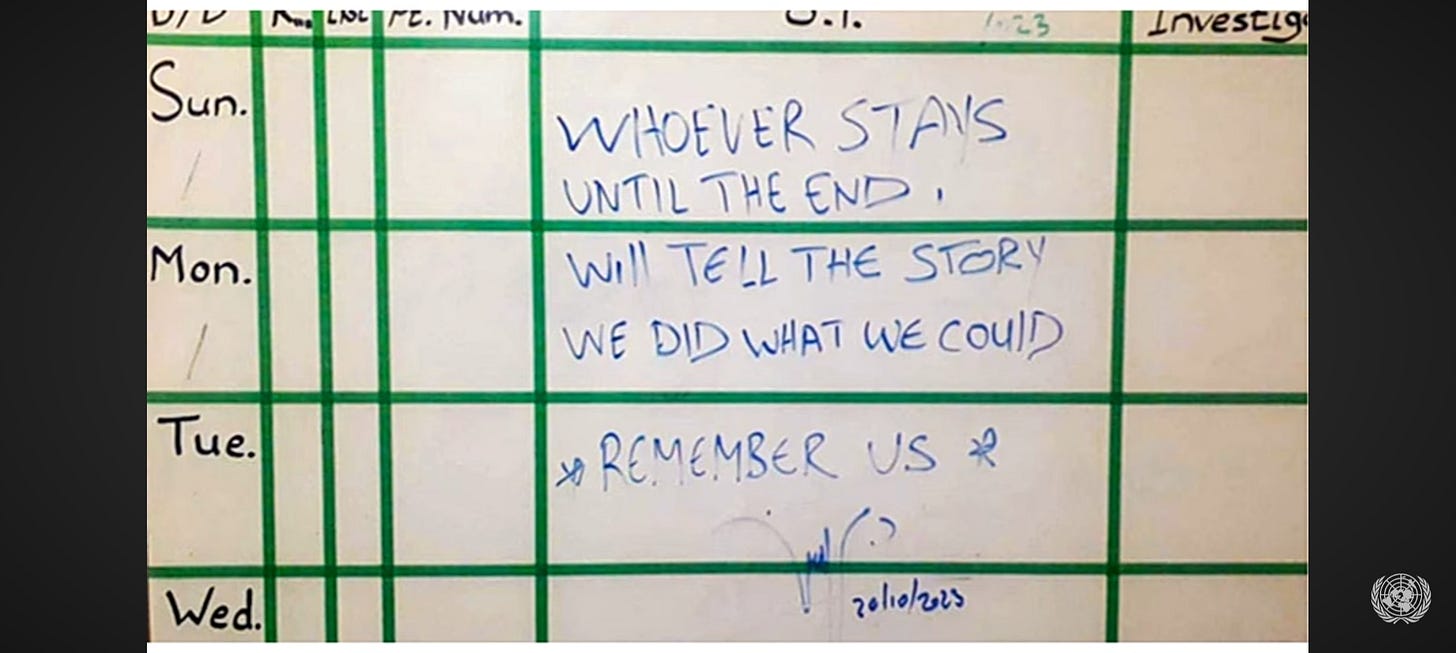About a Man
I want to tell you about a man standing in the rubble that had, not an hour ago, been a building—the building where he lived with his wife and two daughters. I want to tell you that you are meeting him, as I did, as he hears the words that will tear his life in two. I want you to meet him, as I did, in the rubble—his wife and daughters, his life—all that came before, now ash. There are no tools to dig into the wreckage, and even though he attempts by hand, there are no ambulances, and there is no safe hospital should he find anyone still alive. I want to introduce you to a young man named Motaz whose youth is at threat of extinction every day as he films, photographs and documents the unfathomable holocaust in which he lives—the “Never Again” that is life for these men, for their families and people.
I want to break your heart.
*
On New Year’s Day 2009 I was marching against the brutal bombardment of Gaza by Israel known as Operation Cast Lead. As usual, the speeches about Israel’s right to self-defence; as usual the emergency spending bills rapidly rushed through Congress; as usual, Palestinians left to the brutality of American weapons of mass destruction and the Palestinians in general, and Palestinian men in particular painted in the same savage brush used for so long for brown and black men: that of the dangerous and un-human savage, the rapist and barbarian—completely lacking all human tenderness or empathy or humanity.
It was on New Year’s Day 2009 that, as we protested in Civic Center in San Francisco, and outside the Israeli consulate, as we blocked access to the Bay and Golden Gate Bridges for weeks and months, it was there in the streets that we heard about the murder of Oscar Grant, pinned to the ground at an Oakland BART station—shot through the back and killed by an Officer of the Oakland Police Department.
The tension, already at dangerous pitch, snapped. I wasn’t near the fires when they happened, as the news spread through the Bay Area, but I do recall many nights running from tear gas. I remember speeches by young Palestinians born in the diaspora, who have never tasted the food of their grandfather’s table. I remember young Black men talking about dignity and duty and the danger of thinking that it can’t happen to you. I remember the usual politicians at every level offering the usual empty platitudes who kept the usual obscene amounts of money flowing, slowly militarizing every possible inch of our world.
*
There have been more bombardments of Gaza since then. There have more illegal settlements, injured, maimed and martyred civilians—injured, maimed and martyred humans. There have been more murdered Black people since then, gunned down by the police anywhere, everywhere—walking home, doing their jobs, sleeping in their beds. There have been fifteen years and no progress where the world is concerned with black and brown men—with Black men, with Arab and Muslim men and Indigenous men especially (by “men” we always mean any male in the population over eleven years old, as these communities are judged by media and political leaders), who are still portrayed, spoken of and depicted in the same way—savage; deadly; violently lacking in all humanity, and therefore undeserving of attention or concern or support.
*
I want to break your heart because I do not how else to stand here, where I am, where bombs do not fall and I have no fear of the police while the bombs fall on someone else, on someone else’s brother, someone’s infant son; while another Oscar Grant, another George Floyd leaves home with the simple expectation of returning and that is not a rule of the universe or consideration of the world in which we live that they are afforded?
I want to break your heart because I do not know how we will make progress anywhere if we haven’t all been left bereft, no words—only tears—again and again, perfectly pierced by these crimes against humanity, perfectly broken, and now, only after breaking perfectly capable of coming back together with more care to the imperfect places where some wounds never fully heal.
*
I want to tell you about another man who worked at a hospital in Gaza, in northern Gaza. As the bombardment escalated, as the hospital was attacked repeatedly, as doctors and nurses were arrested and disappeared this man remained. He wrote on a whiteboard once used as the ER scheduling block: WHOEVER STAYS UNTIL THE END WILL THE STORY WE DID WHAT WE COULD REMEMBER US. A picture of that board, of that message was submitted as evidence to the International Court of Justice on 11 January 2024 by Blinne Ní Ghrálaigh in a case brought by South Africa against Israel for genocide (this genocide, the one happening in January 2024, the one about which I am writing). The piece of evidence submitted next was a picture of the same white board, destroyed, riddled with bullets or shrapnel, its author one more among 21,000 Palestinian dead (31,000 as of the last report).
*
I want to break your heart because I believe, deep within me that no one is free until we are all free, and that until the people who continue to live under colonial policies that make it impossible to thrive and for their cultures to remain a vital part of the global community that contributes its voice to our collective history, that there can be no peace in any heart.
Until injury ceases, healing cannot begin.




